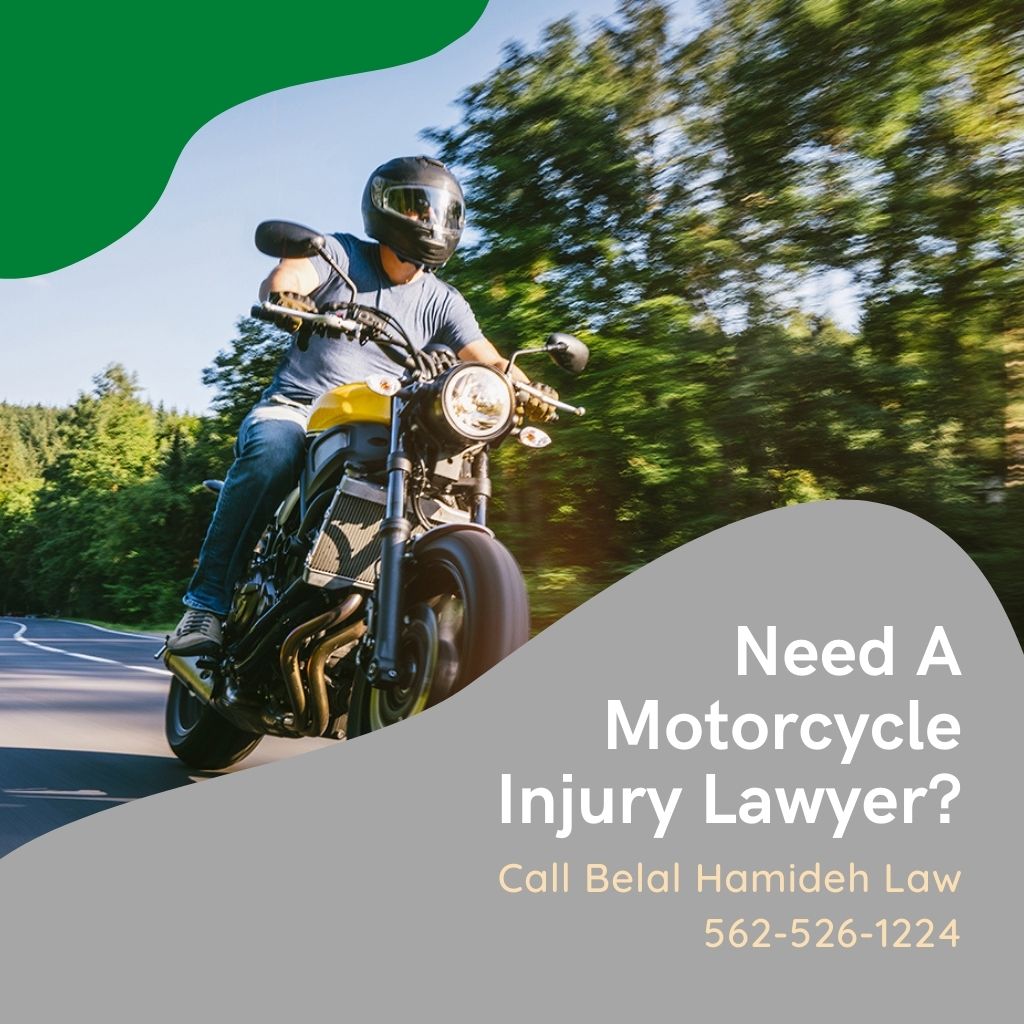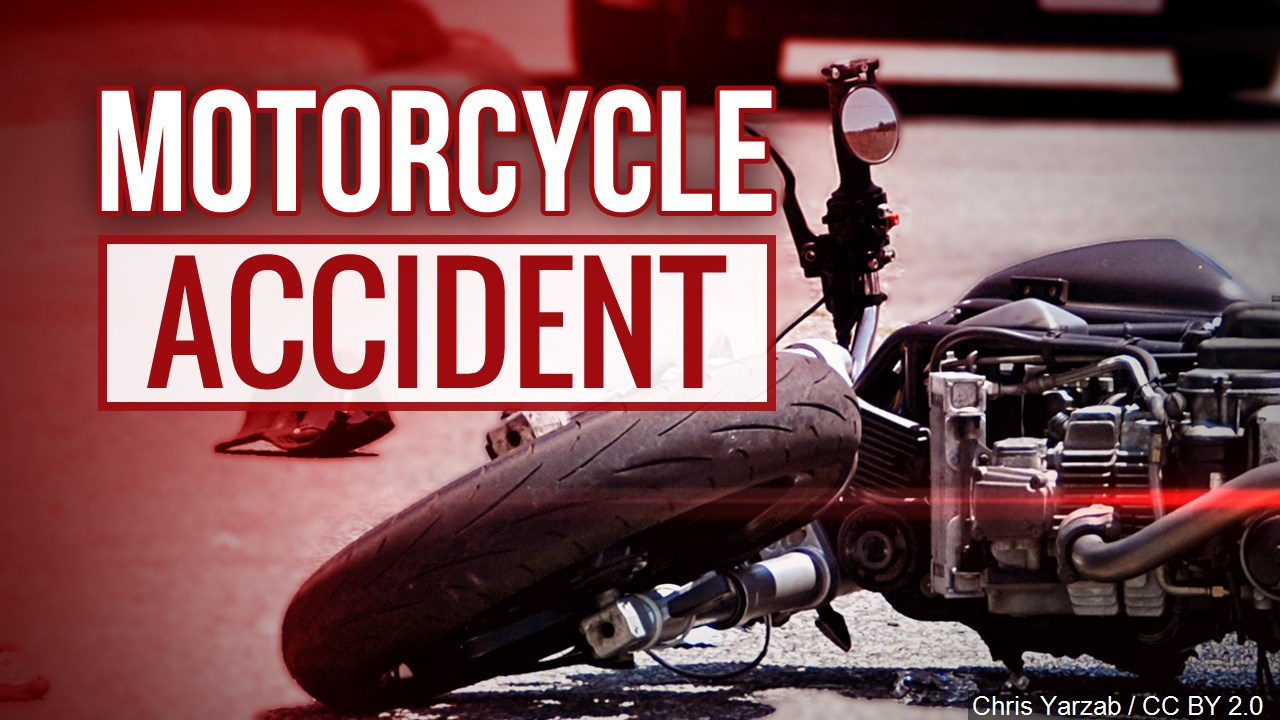motorcycle injury lawyer near me is the first phrase that comes to mind when you’re searching for help after a crash, and for good reason. Imagine navigating the aftermath of an accident, unsure of where to turn or how to protect your rights—having the right attorney by your side can make all the difference. From the chaos of sirens and paperwork to the critical decisions that follow, this topic is packed with real-life stories, practical advice, and valuable insights, all tailored to guide you through each twist and turn.
Understanding what makes a great motorcycle injury lawyer near you is crucial, as every case brings unique challenges and opportunities. Whether you’re dealing with mounting medical bills, lost wages, or emotional recovery, knowing how to choose the right legal ally can affect your outcome. This guide unpacks the steps to take after an accident, the legal process behind injury claims, and how to make the most of your compensation—plus, you’ll discover firsthand accounts from clients whose lives were changed with the right legal support.
Understanding Motorcycle Accident Injuries
Motorcycle accidents can result in a wide range of injuries, many of which are more severe compared to other types of vehicle collisions. The lack of physical protection for riders means that even low-speed accidents can have significant health implications. Understanding the types, severity, and long-term effects of these injuries is crucial for both medical and legal recovery.
Common Types of Motorcycle Accident Injuries
Motorcycle accidents commonly lead to serious and sometimes life-changing injuries. The nature and extent of these injuries often determine the complexity of legal claims and the compensation that victims may be entitled to.
- Road Rash: Abrasions caused by sliding across pavement, which can range from mild to severe, sometimes requiring skin grafts.
- Fractures and Broken Bones: Arms, legs, and collarbones are especially vulnerable upon impact or during a fall.
- Head and Brain Injuries: Concussions and traumatic brain injuries (TBI) can occur, even with helmet use, leading to cognitive and physical impairments.
- Spinal Cord Injuries: Damage to the spinal cord can result in temporary or permanent paralysis, impacting mobility and independence.
- Internal Injuries: Trauma to organs such as the lungs, liver, or spleen may not be immediately apparent but can be life-threatening.
- Soft Tissue Injuries: Damage to muscles, ligaments, and tendons can cause chronic pain and limited mobility.
Impact of Injury Severity on Legal Claims

The severity of motorcycle injuries significantly affects the legal process, influencing the complexity of the case, the evidence required, and the compensation sought.
- Severe head trauma may require expert testimony and extensive medical documentation to prove long-term disability.
- Multiple fractures might necessitate ongoing physical therapy and future medical expenses, increasing the value of the claim.
- Internal injuries that are not immediately detected can complicate the timeline for filing claims and gathering evidence.
- Emotional trauma and PTSD often require psychological evaluations to support claims for non-economic damages.
Long-Term Physical and Emotional Effects
Motorcycle injuries often lead to extensive recovery periods, permanent disabilities, or psychological distress. Victims might experience chronic pain, limited mobility, or even the need for lifestyle adjustments due to the loss of function. Emotional consequences such as anxiety, depression, and post-traumatic stress disorder are common and can be as debilitating as the physical injuries themselves. These long-term effects are critical considerations when seeking fair compensation and support after an accident.
Qualities to Look for in a Motorcycle Injury Lawyer
When choosing a motorcycle injury lawyer, it is essential to focus on expertise, local knowledge, and a proven track record. The right lawyer can make a significant difference in the outcome of your case by navigating the complexities of motorcycle accident claims and maximizing your compensation.
Essential Qualifications and Traits of a Reputable Lawyer
There are key factors you should consider to ensure you select a qualified and dedicated lawyer. The following table compares the crucial qualities to evaluate:
| Qualification | Experience | Communication | Client Commitment |
|---|---|---|---|
| Licensed in your state | Proven record with motorcycle cases | Clear, prompt responses | Personalized attention to clients |
| Member of relevant bar associations | Experienced in settlement & courtroom litigation | Ability to explain legal terms simply | Transparent about fees and process |
| Strong ethical standing | Familiarity with local courts and insurance tactics | Regular updates about case progress | Empathy and understanding of client needs |
Importance of Local Legal Expertise
Local legal experience is critical for navigating jurisdiction-specific laws and understanding how local courts and insurance companies operate. Lawyers familiar with the area are more likely to anticipate challenges and leverage regional precedents or community resources effectively. This localized insight helps them advocate more efficiently for their clients.
Benefits of Specialization in Motorcycle Cases
Specialization enables lawyers to develop in-depth knowledge of motorcycle accident dynamics, injury patterns, and legal strategies most effective in such cases. For example, a specialized lawyer may recognize how a certain road condition or helmet law affects liability, leading to stronger evidence collection. Real-world scenarios show that clients represented by specialized lawyers often secure higher settlements or favorable verdicts due to this targeted expertise.
Steps to Take After a Motorcycle Accident
Acting quickly and decisively after a motorcycle accident is vital for both your health and legal interests. Following the right steps can help preserve evidence, support your claim, and protect your rights in the aftermath of a crash.
Immediate Procedures Following a Motorcycle Accident
Here’s a clear breakdown of essential actions to take after being involved in a motorcycle accident:
- Check for injuries and move to safety if needed, without risking further harm.
- Call emergency services to report the accident and request medical assistance.
- Document the scene by taking photos of the vehicles, road conditions, injuries, and surroundings.
- Exchange contact and insurance information with all parties involved.
- Gather witness statements and contact information, if available.
- Seek immediate medical attention, even if injuries seem minor, to ensure proper evaluation and documentation.
- Notify your insurance company about the accident as soon as possible.
- Contact a reputable motorcycle injury lawyer to discuss your case and next steps.
Significance of Timely Documentation and Evidence Collection
Accurate and prompt collection of evidence significantly strengthens your legal claim. Photographs, medical records, witness accounts, and police reports all play a crucial role in establishing fault and the extent of your damages. Delays can result in lost or compromised evidence, reducing your chances of a successful claim.
Notifying Authorities and Legal Assistance
Reporting the accident to local law enforcement ensures there is an official record, which is often required by insurers and courts. Early consultation with a lawyer allows you to understand your rights, avoid common mistakes, and ensure key evidence is preserved for your case.
The Legal Process for Motorcycle Injury Claims
Understanding the legal process behind motorcycle injury claims helps set realistic expectations and allows accident victims to navigate each phase with confidence. Each stage involves specific responsibilities for both the injured party and the legal professionals representing them.
Stages of Filing a Motorcycle Injury Claim
The following table presents a sequential flowchart outlining the main steps involved in a motorcycle injury claim:
| Step | Description | Responsible Party | Key Outcomes |
|---|---|---|---|
| 1. Initial Consultation | Client meets with lawyer to review facts, injuries, and legal options. | Client & Lawyer | Case assessment, fee agreement formed |
| 2. Investigation | Collection of evidence, accident reports, witness statements, and medical records. | Lawyer | Establishes liability and damages |
| 3. Filing the Claim | Legal paperwork is submitted to the at-fault party’s insurer or court. | Lawyer | Claim officially begins |
| 4. Negotiation | Lawyer negotiates with insurance adjusters for a fair settlement. | Lawyer & Insurer | Possible settlement offer |
| 5. Litigation (if needed) | If settlement is not reached, the case proceeds to court for trial. | Lawyer, Client, Court | Potential trial verdict and judgment |
Roles of Each Party Involved
Throughout this process, the client provides information and remains involved in decision-making. The lawyer handles legal filings, negotiations, and courtroom representation. Insurance companies assess liability and negotiate settlements, while courts oversee trials and render decisions if litigation becomes necessary.
Settlements and Negotiations in Motorcycle Injury Cases
Most motorcycle injury claims are resolved through negotiation, where lawyers advocate for fair compensation based on evidence and documentation. If negotiations fail, going to trial becomes necessary, where both sides present their case. Successful settlement negotiations depend on the strength of the evidence, the experience of the lawyer, and accurate calculation of damages.
Compensation Available for Motorcycle Accident Victims
Motorcycle accident victims are often entitled to compensation covering both economic and non-economic losses. The categories and methods for calculating these damages can vary depending on the severity of the injuries and the circumstances of the accident.
Categories of Compensation

Victims may pursue compensation for a variety of losses resulting from the accident. Here are the most common types:
- Medical Expenses: Hospital stays, surgeries, physical therapy, medications, and future treatment needs.
- Lost Wages: Income lost due to time off work during recovery, as well as loss of future earning capacity.
- Pain and Suffering: Physical pain, emotional distress, and loss of enjoyment of life.
- Property Damage: Repairs or replacement of the motorcycle and related gear.
- Rehabilitation Costs: Expenses related to long-term therapy, mobility aids, or home modifications.
- Loss of Consortium: Impact on relationships and family life due to the injuries sustained.
Calculating Damages in Motorcycle Injury Cases
Damages are typically calculated based on medical bills, pay stubs, expert testimony, and documentation of personal suffering. Non-economic damages often require testimony from mental health professionals or use of standard formulas approved by the court.
The multiplier method is often used in personal injury cases, where economic damages are multiplied by a factor (usually between 1.5 and 5) depending on the severity and impact of the injuries.
Comparing Compensation Outcomes in Real Cases
For example, a motorcyclist who suffers multiple fractures and permanent disability could receive a significantly higher settlement than someone with minor injuries and a short recovery time. In a 2022 case in California, a rider with spinal cord injuries received $1.8 million after demonstrating the need for lifelong care, while another with road rash and minor fractures received $50,000, reflecting the differences in severity and long-term impact.
How to Find a Motorcycle Injury Lawyer Near You
Locating the right motorcycle injury lawyer in your area can feel overwhelming, but leveraging trusted resources and planning for initial meetings can simplify the process. The right local legal support can make a substantial difference in the success of your claim.
Methods for Locating Local Motorcycle Injury Lawyers, Motorcycle injury lawyer near me
Reliable ways to find skilled motorcycle injury lawyers include utilizing online legal directories, asking for referrals from fellow riders or community groups, and checking reviews from previous clients. Attending local motorcycle events or support groups can also lead to trustworthy recommendations.
Practical Tools and Resources for Researching Lawyer Credentials
The following table lists practical online and offline tools that can help you verify the qualifications, reputation, and experience of prospective lawyers:
| Resource | Type | Details | How It Helps |
|---|---|---|---|
| State Bar Association | Online Directory | Official lawyer license lookup and disciplinary history | Ensures lawyer is licensed and in good standing |
| Avvo, Martindale-Hubbell | Online Reviews & Ratings | Client reviews and peer ratings | Gauges reputation and satisfaction |
| Word of Mouth | Community Referrals | Recommendations from other riders or local groups | Trusted, firsthand experiences |
| Lawyer Websites | Firm Information | Attorney bios, case results, and specialties | Identifies relevant experience |
Importance of Initial Consultations and Preparation
Scheduling an initial consultation allows you to ask questions, review the lawyer’s approach, and discuss your case details. Bring all relevant documentation, such as medical records, accident reports, witness contact information, and any correspondence with insurance companies to ensure a productive first meeting.
Client Success Stories and Testimonials
Real-world client experiences provide insight into how a motorcycle injury lawyer can make a difference in challenging cases. These accounts highlight the value of skilled legal representation and build trust for future clients.
Collection of Client Testimonials
“After my motorcycle accident, I was overwhelmed. My lawyer took care of everything, kept me informed, and fought for a settlement that covered all my medical needs.”
“I wasn’t sure if my case was strong enough, but having a specialist who understood motorcycle accidents made all the difference. The settlement exceeded my expectations.”
“My lawyer knew the local laws and insurance tricks. Thanks to their dedication, I could focus on my recovery while they handled the legal side.”
Case Results Highlighting Successful Outcomes
In one case, a client suffered a serious leg injury after a collision and was initially offered a low settlement. With proper legal representation, the case was negotiated to a six-figure settlement covering medical expenses, lost wages, and pain and suffering. In another instance, a client facing a disputed liability claim was able to prove the other party’s fault through detailed evidence collected by their attorney, leading to a favorable court verdict.
Guidance from Previous Client Experiences
Personal stories and testimonials can help new clients set realistic expectations, understand the process, and feel confident in their choice of lawyer. Learning from others’ experiences can provide valuable reassurance and help prospective clients make informed decisions.
Frequently Encountered Challenges in Motorcycle Injury Cases
Motorcycle injury claims often present unique legal and procedural challenges that can complicate the path to fair compensation. Recognizing these obstacles and adopting effective strategies to address them is essential for a successful outcome.
Common Legal and Procedural Obstacles
Motorcyclists may face bias from insurance companies or juries, who sometimes assume riders are at fault. Gathering sufficient evidence can be difficult, especially if witnesses are unavailable or if the accident scene changes quickly. Insurance adjusters often attempt to minimize payouts by disputing the severity of injuries or arguing contributory negligence.
Strategies for Overcoming Challenges
Effective approaches to navigating these obstacles include the following key strategies:
- Retaining legal counsel experienced in handling motorcycle accident cases.
- Documenting all injuries, treatments, and expenses meticulously.
- Securing witness statements and physical evidence as soon as possible.
- Challenging negative stereotypes about motorcyclists through factual evidence.
- Negotiating assertively with insurance companies and preparing for the possibility of litigation.
Complexities Unique to Motorcycle Accident Litigation
Unlike other personal injury cases, motorcycle accident litigation often involves more severe injuries, disputed liability, and intricate insurance issues. The dynamics of motorcycle collisions, such as lane-splitting or lack of visibility, require specialized legal knowledge and careful evidence examination. Navigating these complexities demands a focused, strategic approach to secure just compensation for victims.
Final Thoughts

Choosing the right motorcycle injury lawyer near me is more than a search—it’s a decision that can shape your recovery and your future. By understanding the types of injuries, legal steps, and the qualities to look for in a lawyer, you’re better prepared to tackle the challenges ahead and secure the compensation you deserve. Let the experiences and strategies shared here empower you to make informed choices and move forward with confidence after a motorcycle accident.
FAQ Section: Motorcycle Injury Lawyer Near Me
What should I bring to my first meeting with a motorcycle injury lawyer?
Bring any documents related to your accident, such as police reports, medical records, photos of the scene and injuries, insurance information, and any communication with the other party or their insurance.
How much does it cost to hire a motorcycle injury lawyer?
Most motorcycle injury lawyers work on a contingency fee basis, meaning you typically pay nothing upfront and the lawyer only gets paid if you win your case or receive a settlement.
How long do motorcycle injury cases usually take to resolve?
The timeframe can vary depending on the complexity of the case, but most claims are resolved within several months to a year. Some may take longer if they go to trial or involve extensive negotiations.
Can I still file a claim if I was partially at fault for the accident?
Yes, in many states you can still pursue compensation even if you were partly at fault, though your recovery may be reduced by your percentage of responsibility.
Will my case go to trial?
Most motorcycle injury cases are settled out of court, but if a fair agreement cannot be reached, your lawyer may recommend going to trial to seek full compensation.
